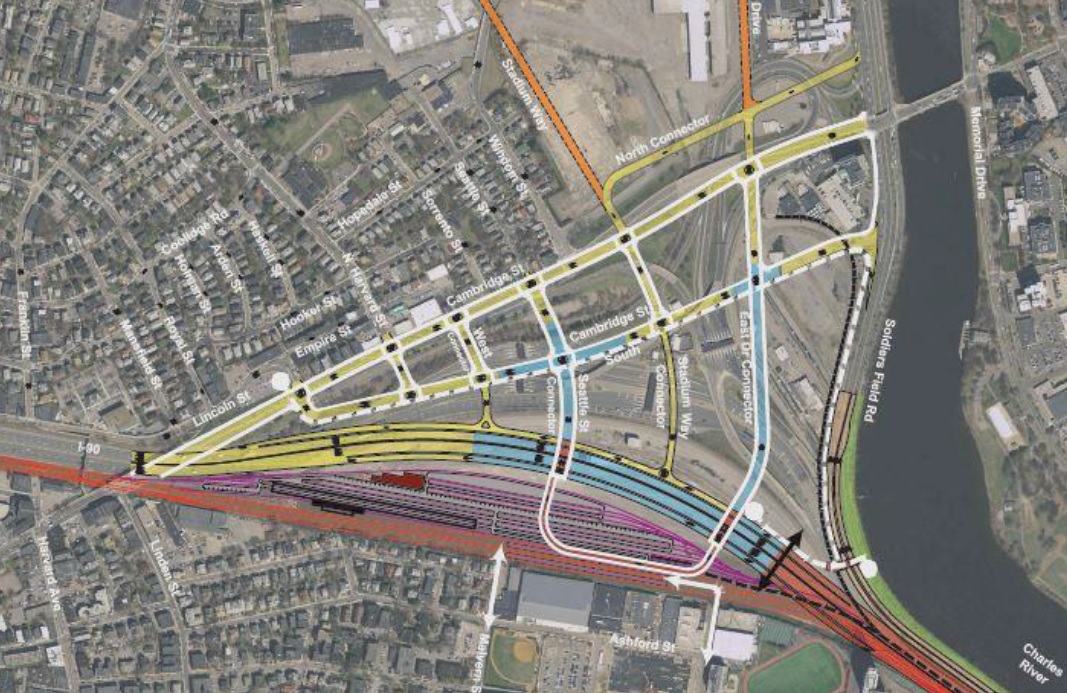Senator Brownsberger commented for the Boston Herald? on the rehiring of 70 MassDOT employees after they participated in the early retirement program. “When you really do the math and you factor in the true value of the increased pension benefits, it works out to a $90,000 gift to each person retiring,” said state Sen. William N. Brownsberger (D-Belmont), referring to the bump-up in pension benefits that were awarded to get people to accept early retirement. He added that refilling those jobs defeated the purpose. “The savings only happens if you keep the person off the payroll. So, to the extent that people are coming back, the economics looks worse.”
Bowker Overpass Repairs Update
The Bowker Overpass Repair Project is moving towards completion. Phase 4 demolition started last week and will continue into December on the western lane of the northbound side of the overpass. This is the final phase of demolition, which has been the noisiest and most disruptive work for neighbors. The repair project is expected to be complete by summer of 2016.
I-90 Allston Interchange Project Finance
The funding for the highway component of this project will come from toll money. However, the rest of the project remains without identified funding sources. At both the state and federal level there is a finite amount of money available for transit projects. Solving the funding challenges for this project is a top priority for Senator Brownsberger and other neighborhood legislators.
Lawmakers urged to protect children from sexual abuse by educators
WCVB reports??? on legislation (S.868? and S.869?) before the Joint Committee on The Judiciary regarding the of the age of consent for sexual relations. Senator Brownsberger said “We take it very seriously when people in positions of authority abuse that authority. So I am very hopeful we can make appropriate changes along the lines suggested by these bills.”
Notes on Watertown-Cambridge Greenway Meeting
Roughly 100 people attended the meeting on Monday, November 30. The meeting was positive but a number of concerns were raised. Representative Hecht summarized our shared commitment to getting the details right and getting the project done.
Stricter Seat Belt Laws?
Before Thanksgiving, the Judiciary Committee heard testimony in support of a bill to tighten the state’s seat belt law. I’m considering supporting the change, based on the compelling evidence that it would save lives. As always, I’d appreciate hearing your thoughts.

